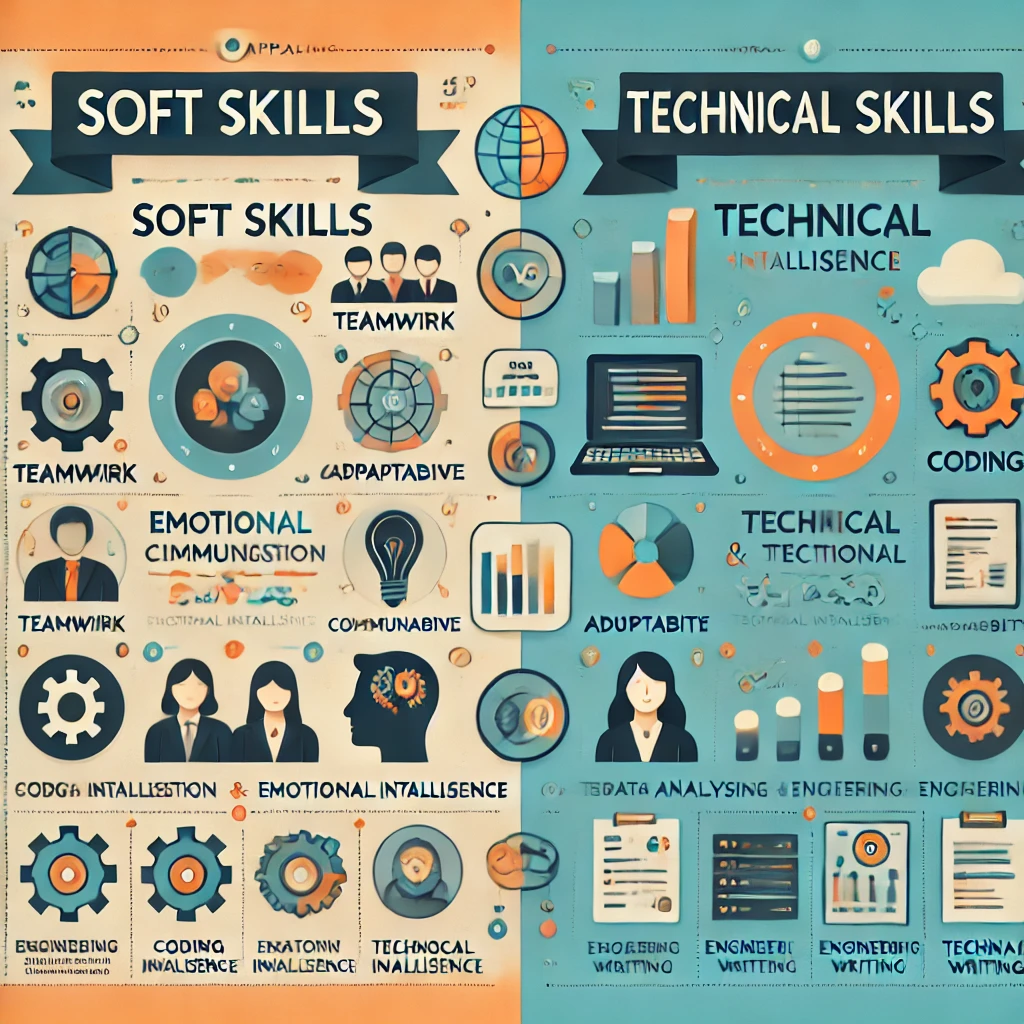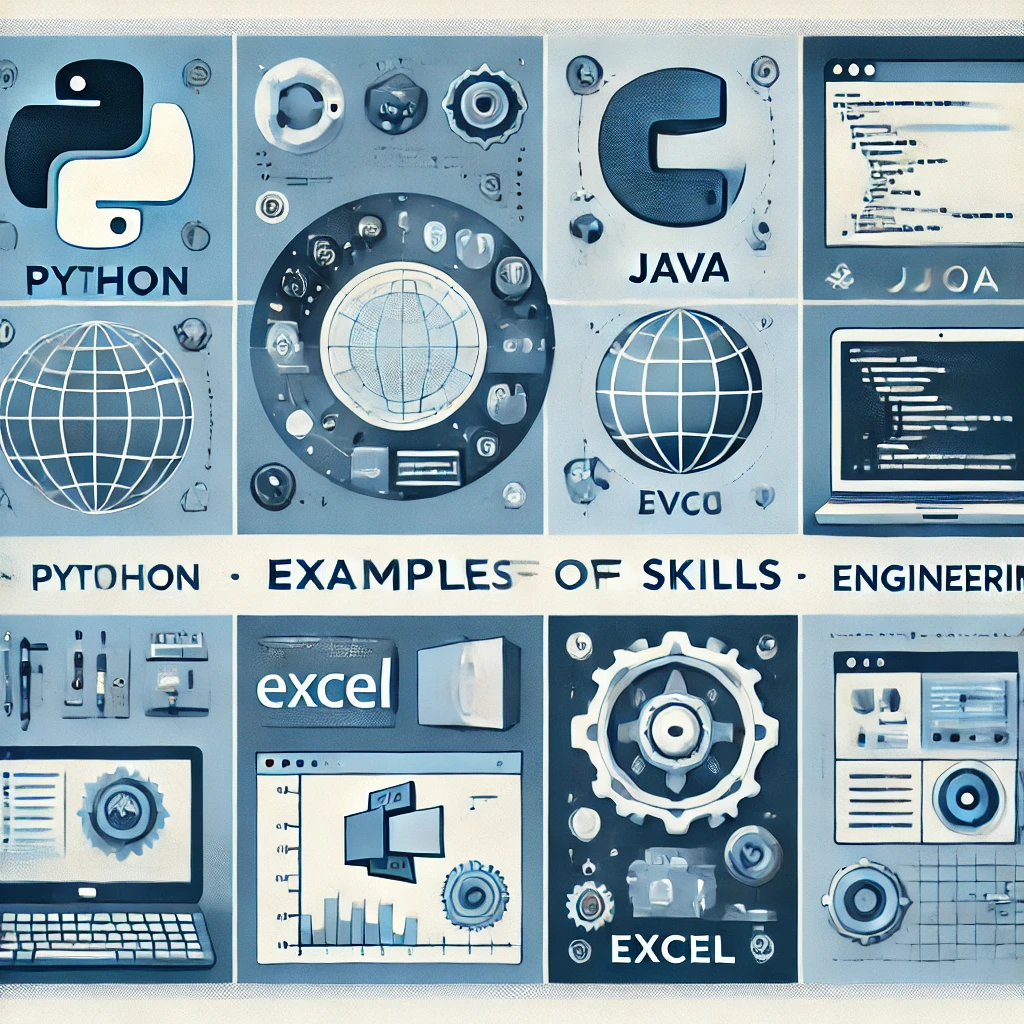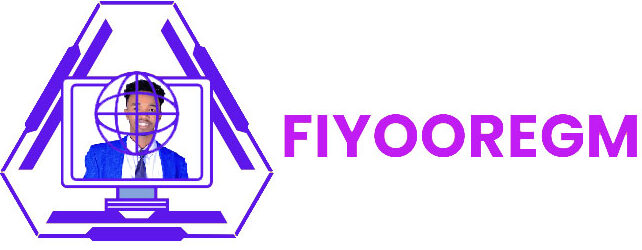
What Are Technical Skills? in 2025 At present, technical skills are increasingly becoming one of the vital attributes that every job seeker possesses. Be it software development, engineering, marketing, or any other job category, technical skills would by now turn out to be a passport to successful life ‘Anywhere’. But what does this mean actually, and why is it important?
In this article, we will talk about what technical skills are, some examples of such skills, how you can acquire them, and how important these skills are in many industries. It also tells about the difference between technical skills and soft skills and how one can create an apt mix of skills for career development.

Table of Contents
1. What Are Technical Skills?
2. Examples of Technical Skills
3. Technical Skills vs. Soft Skills: What’s the Difference?
4. Why Are Technical Skills Important?
5. How to Develop and Improve Technical Skills
6. Industries That Value Technical Skills
7. Conclusion: The Future of Technical Skills
What Are Technical Skills?
Definition of Technical Skills
What Are Technical Skills? Technical skills are those that involve a set of phenomena required to perform a particular task within the workplace or industry. These are considerable and specifically acquired through formal education or certain training. While soft skills relate more to the way you interact with others and approach things, technical skills cover tangible things, such as tools, machinery, or software.
Examples of technical skills include
. Programming languages, such as Python, Java, and C++.
. Software for web development (for example, HTML, CSS, JavaScript).
. Data analysis programs (for example, Excel, and SPSS).
. Engineering skills (for example, CAD software, robotics).
. Graphic design software, for example, Adobe Photoshop, and Illustrator.
. Accounting software (for example, QuickBooks, SAP).
Technical Skill Importance
In today’s age, an employee uses technical skills to stay updated with the changing world. For example, businesses seek personnel who can understand technology to help in the streamlining of processes, innovation, and solving many other complex problems.
Technical skills are not merely performing activities; they are the modern-day ways through which businesses work to ensure efficient competition within an industry. Technical skills are shaded as capabilities that must be performed in IT, health, engineering, and finance. This makes being in possession or otherwise of technical skills the deciding factor for many jobs on the possibility of success or failure.
How Technical Skills Can Enhance Your Career
Having a high degree of technical skill endowment enables you to:
. Competency: Adaptability to new toolsets, technology, and innovation changes.
. One would outshine peers in competition within the job market.
. Receive more complex projects, which yield higher pay.
. Become growth and efficiency-oriented for business.
. Improved data-driven problem-solving.
Examples of Technical Skills

Software Development Skill Examples
Technical skills have a very definite demarcation in their definitions in software development. As a developer or software engineer-perhaps, the basic understanding should be deep into the core of code languages, frameworks, and tools of development. JavaScript, Python, Ruby on Rails, and SQL are the most preferred and attractive skills to the operators. Understanding these skills shall help one write codes for applications, websites, and systems.
Data Science and Analytics
Another budding area requiring technical skills is data science. Data science evaluates large data sets to provide insights that drive the business in a certain direction. Many example technical skills under this category of data scientists would be use skills in such tools as Python, R, and SQL; knowledge of machine learning algorithms; knowledge of visualization tools such as Tableau and Power BI; and knowledge of databases.
Digital Marketing
Digital Marketing is where these technical skills come into play-the use with SEO, SEM, social media management, or content generation. There are many elements of technical skill, such as being more analytically capable in certain analytics tools such as Google Analytics and SEMrush-with small knowledge of HTML in web development and also with automation software like HubSpot.
Engineering Manufacturing Skills
Engineers use technical skills in the design, development, and problem-solving of systems and structures. For manufacturing engineers, whether they are civil engineers or electrical engineers, the core technical skills include proper CAD, or Computer-Aided Design, abilities, as well as robotics and mechanical systems.
Technical Skills Vs. Soft Skills: What is the Difference?
Technical skills and soft skills are highly different within themselves. This is important as far as learning is concerned to help professionals see their potential concerning their growth within their fields.
Technical Skills:
. Definition: These are some learned abilities that are basically used for performing a specific job.
. Examples: Programming languages, data analysis, machinery use, network security, CAD.
. How They Are Acquired: This is normally acquired through university education, training, or experience.

Soft Skills:
. Definition: Soft skills are the interpersonal traits and qualities that help one interact well with others.
. Examples: Communication, teamwork, adaptability, leadership, problem-solving, and time management.
. How They Are Acquired: Generally, soft skills are acquired over time through experience, self-reflection, and interaction with others.
Importance of Technical Skills
Consider these points: today’s workplaces are inundated with a buzzword: technical skills.
1. Universally Indispensable
Almost every industry has started to go digital; so too technical skills are needed to keep up with the digitized world. No matter how you work in a company from owning a tech firm to being employed in healthcare, telecommunication, or finance-the reality remains that most modern job roles have technology as their core.
2. Improve Performance Efficiency
Therefore, technical competence equips one to perform functions with the best cutting-edge tools and technologies, and as a result, quality and efficiency are maximized for both personnel and employers.
3. Higher Opportunities for Employment and Salary
It is directly proportional to the increase in salary based on one’s command over technical skills. Some professions thrive with values as high as those in technology, engineering, and data analysis.
How to Develop and Improve Technical Skills
1. Enroll in Online Courses and Certifications
There are lots of online portals such as Coursera, edX, and Udemy where one can choose courses ranging from coding to digital marketing to data analysis. Taking and completing these courses and being certified can add truly valuable construct to your technical skills.
2. Join Communities and Forums
Join online platforms like GitHub, which is for developers; or data science forums on Reddit, and get feedback from others and exchange ideas on emerging trends in industries.
3. Classroom Courses and Bootcamp Seminars
Intensive coding boot camps, workshops, or face-to-face seminars are ideal situations to enjoy the hands-on and immersive nature of technical work.
4. Work on Personal Projects
The last approach is through personal development. Practicing is what actually shall nail your skills down: programming your own website, analyzing datasets, or tinkering with software development activities possible during the private building of projects.
Industries That Value Technical Skills
Such are the industries listed in high-end-to-very high-demand when it comes to having technical skills:
1. Information Technology and Software Development Industry
Technical skills like coding for software development, cyber security, network administration, etc., involve system architecture and security setups.
2. Hospitals and Clinics
Very particular clinical staff will have technical skills purely related to medical equipment, therapeutic software, or data management systems; they’re things like radiologists, laboratory technicians, or telemedicine professionals.
3. Engineering and Manufacturing
Mechanical, electrical, and civil engineering have skill sets usually established CAD software to handle machines.
4. Finance and Accounting
This comprises various items building a financial model to literacy in software such as QuickBooks or SAP. Here are some examples of what might be considered a technical skill set an accountant could build in his career in the field of finance. Also on the list would be data analysis tools.
Conclusion:
The Future of Technical Skills
The demand for technical skills will always be constant. As technology changes, the professional needs to continuously upgrade and keep in touch at all times with new developments. This is the way where technical skills blended with soft skills will future-proof careers and ensure their success in an ever-changing job market.
